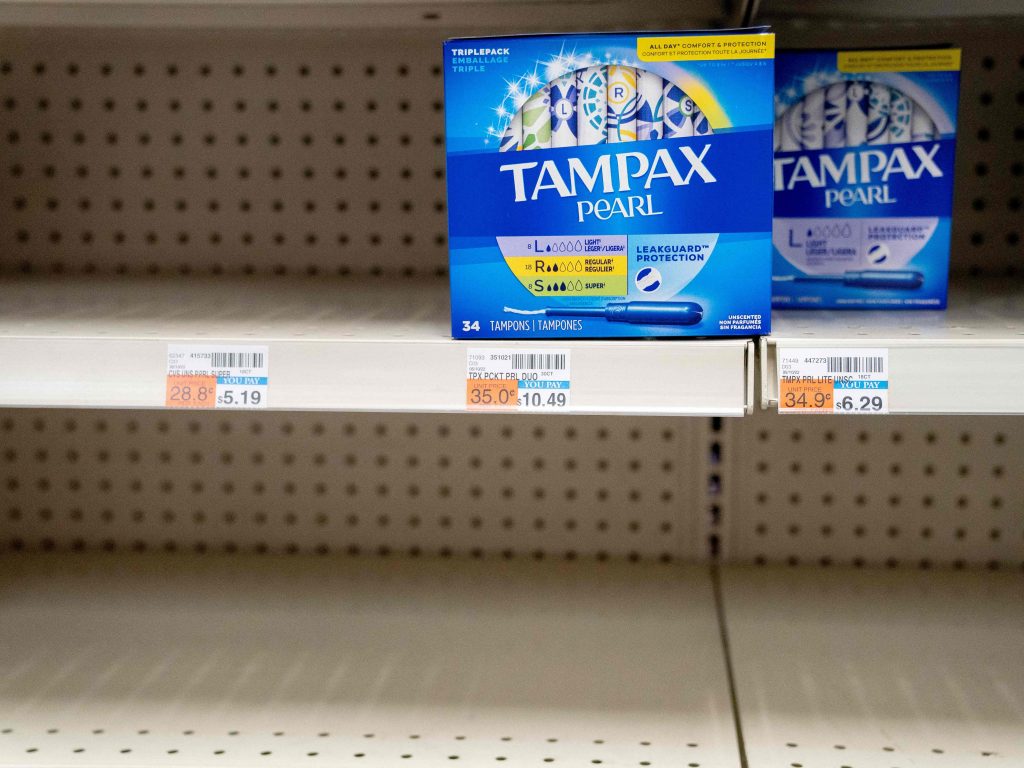- One of the most important tampon factories in the US can't hire enough workers, Bloomberg reports.
- The Tampax manufacturer in Maine recently raised its starting salary from $47,000 to $60,800 a year.
- Its hiring challenges come amid reports of tampon shortages and menstrual product inflation.
The only Tampax factory in the US continues to struggle with labor shortages despite raising its starting salary from $47,000 to $60,800 a year, Bloomberg reported Tuesday.
While the plant's hiring challenges are far from unique in today's tight labor market, it comes as brand-specific tampon shortages hit certain regions across the country. At the same time, the price of a box of tampons has increased by nearly 10% this year, according to data from Neilson IQ.
Last year, the Tampax factory located in Auburn, Maine raised its hourly wages from $17.91 in February to $23.41 in July, employee Facebook posts show. By January, workers received $25.41 an hour along with a benefits package including medical and dental insurance, 15 paid vacation days and 12 paid holidays, an education reimbursement plan, 401k options, and a free fitness center.
Procter & Gamble — the company that owns Tampax — currently lists five full-time positions open at the Maine plant. A P&G spokesperson told Bloomberg that the factory's employee levels have "largely stabilized."
However, sources familiar with the matter told Bloomberg that the factory continues to be short-staffed. P&G did not immediately respond to Insider's request for comment.
Tampax is the most popular tampon brand in the US. In 2020, its products were used by an estimated 18.3 million women in the US, according to data from Statista. In April, Procter & Gamble's chief financial officer said sourcing the raw materials for tampons "continues to be costly and highly volatile."
Walgreens told Insider in early June that it is "experiencing some temporary brand-specific shortages in certain geographies" of tampons. CVS confirmed a similar trend, saying "in recent weeks, there have been instances when suppliers have not been able to fulfill the full quantities of orders placed."
Target told Insider it has a "wide variety" product available online and in stores and is working to procure more in areas where stock is more limited.
